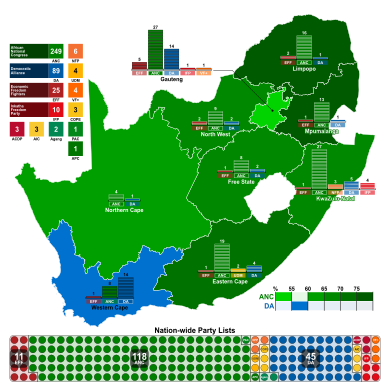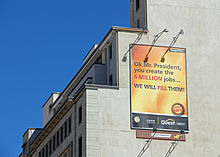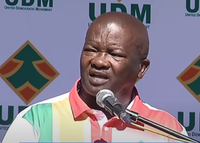
Back Suid-Afrikaanse algemene verkiesing van 2014 Afrikaans Parlamentswahl in Südafrika 2014 German Νοτιοαφρικανικές γενικές εκλογές (2014) Greek Elecciones generales de Sudáfrica de 2014 Spanish Élections générales sud-africaines de 2014 French Eleccións xerais de Suráfrica de 2014 Galician Pemilihan umum Afrika Selatan 2014 ID Elezioni generali in Sudafrica del 2014 Italian 2014年南アフリカ総選挙 Japanese Pilihan raya umum Afrika Selatan 2014 Malay
| |||||||||||||||||||||||||||||||||||||||||||||||||||||||||||||||||||||||||||||
All 400 seats in the National Assembly 201 seats needed for a majority | |||||||||||||||||||||||||||||||||||||||||||||||||||||||||||||||||||||||||||||
|---|---|---|---|---|---|---|---|---|---|---|---|---|---|---|---|---|---|---|---|---|---|---|---|---|---|---|---|---|---|---|---|---|---|---|---|---|---|---|---|---|---|---|---|---|---|---|---|---|---|---|---|---|---|---|---|---|---|---|---|---|---|---|---|---|---|---|---|---|---|---|---|---|---|---|---|---|---|
| Registered | 25,388,082 | ||||||||||||||||||||||||||||||||||||||||||||||||||||||||||||||||||||||||||||
| Turnout | 73.48% ( | ||||||||||||||||||||||||||||||||||||||||||||||||||||||||||||||||||||||||||||
| |||||||||||||||||||||||||||||||||||||||||||||||||||||||||||||||||||||||||||||
 | |||||||||||||||||||||||||||||||||||||||||||||||||||||||||||||||||||||||||||||
| |||||||||||||||||||||||||||||||||||||||||||||||||||||||||||||||||||||||||||||
| This article is part of a series on the |
| Politics of South Africa |
|---|
 |
|
|


General elections were held in South Africa on 7 May 2014,[3] to elect a new National Assembly and new provincial legislatures in each province. It was the fifth election held in South Africa under conditions of universal adult suffrage since the end of the apartheid era in 1994, and also the first held since the death of Nelson Mandela. It was also the first time that South African expatriates were allowed to vote in a South African national election.[4]
The National Assembly election was won by the African National Congress (ANC), but with a reduced majority of 62.1%, down from 65.9% in the 2009 election. The official opposition Democratic Alliance (DA) increased its share of the vote from 16.7% to 22.2%, while the newly formed Economic Freedom Fighters (EFF) obtained 6.4% of the vote.
Eight of the nine provincial legislatures were won by the ANC. The EFF obtained over 10% of the vote in Gauteng, Limpopo and North West, and beat the DA to second place in the last two. In the other six provinces won by the ANC, the DA obtained second place. This included KwaZulu-Natal, where the DA for the first time beat the Inkatha Freedom Party to second place. In the Western Cape, the only province not won by the ANC, the DA increased its majority from 51.5% to 59.4%.
- ^ "Zuma: We aim to create six million jobs". News24. 11 January 2014. Archived from the original on 11 January 2014. Retrieved 24 April 2014.
- ^ Vecchiatto, Paul (13 January 2014). "Zuma pledges to create 6-million 'job opportunities'". Business Day. South Africa. Archived from the original on 21 January 2014. Retrieved 24 April 2014.
- ^ "Zuma signs election proclamation". News24. 21 February 2014. Archived from the original on 12 September 2019. Retrieved 21 February 2014.
- ^ Baksh, Nouf (30 April 2014). "South African expats in UAE vote for the first time in country's elections". The National. Abu Dhabi. Archived from the original on 3 May 2014. Retrieved 22 June 2014.
© MMXXIII Rich X Search. We shall prevail. All rights reserved. Rich X Search





